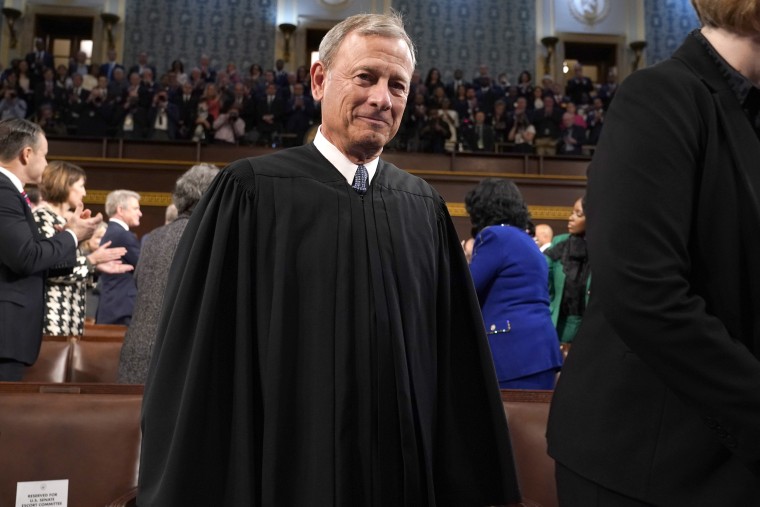A Supreme Court ruling that could impact 2024
There’s no question the Supreme Court’s ruling that effectively gutted affirmative action will affect not just universities and campuses, but likely corporate boardrooms and beyond.
But a different Supreme Court decision this week, which was initially met with a sigh of relief, could also be leading us down a problematic path.

On one hand, the ruling in Moore v. Harper avoids the far more terrible option of giving partisan legislatures unfettered power to shape election law and, potentially, overrule the will of voters.
But on the other, some legal experts believe Chief Justice John Roberts' decision leaves a great deal of power in the hands of federal courts and, yes, the wildly unpopular Supreme Court, to decide election disputes. So it was a surprisingly good ruling from the majority of Supreme Court justices. But it may leave room for a lot of judicial mischief leading up to the 2024 presidential election.
A story you should be following: Russia
The Wagner Group’s shocking — albeit short-lived — rebellion in Russia last weekend is over. Despite the nation’s relative calm, there is a lot happening behind the scenes. As new reporting highlights the ongoing fallout from the crisis, Russian experts tell me they’re keeping an eye on three key themes.
1. Reports emerged this week that Russian General Sergei Surovikin knew about Wagner leader Yevgeny Prigozhin’s plans. This would make sense, given how easily Prigozhin’s troops marched through the country. But who else knew? And did Pirgozhin assume he had even deeper support?
2. As part of the deal that called off the rebellion, Wagner fighters were reportedly offered immunity if they signed up with the Russian military. It seems unlikely many of his men will take advantage of that offer. But what happens to the Russian fighting force if Wagner troops leave the front lines?
3. And just as important, what happens to Prigozhin? It's hard to believe President Vladimir Putin will allow the leader to safely and peacefully live out his days in Belarus.
Some people you should know: David Remnick, Julia Ioffe and Anne Applebaum
It’s not always easy to discern fact from propaganda when it comes to Russian headlines. As we followed Prigozhin’s progress last week, reporting and context from expert journalists who actually know the region was invaluable.
David Remnick, editor of The New Yorker and a former Moscow correspondent at the Washington Post, is someone I will be following closely as the aftermath of Prigozhin’s rebellion unfolds. His latest reporting features a conversation with Russian journalist Mikhail Zygar examining the power dynamics at play. Julia Ioffe, a reporter for Puck News, provided important analysis in her latest piece, “Putin vs. Prigozhin: The Post-Coup Report.” And Anne Applebaum, a staff writer at The Atlantic, asked the critical question: “Is Putin facing his Czar Nicholas II moment?”
David, Julia, Anne and the many other reporters covering the complexities of the struggle for power in Russia will be vital resources in the complicated months ahead.
Sarah Kate Ellis’ weekend routine
Pride Month may be wrapping up but Sarah Kate Ellis, the president of GLAAD, knows the fight for equality is a 24/7 struggle.
What show are you bingeing on right now?
I just finished "Succession."
What’s the last book you read?
"The Seven Husbands of Evelyn Hugo."
What time do you wake up on the weekends?
I sleep in on the weekends, and get up at 8 a.m.
How do you take your coffee?
Cream, no sugar.

